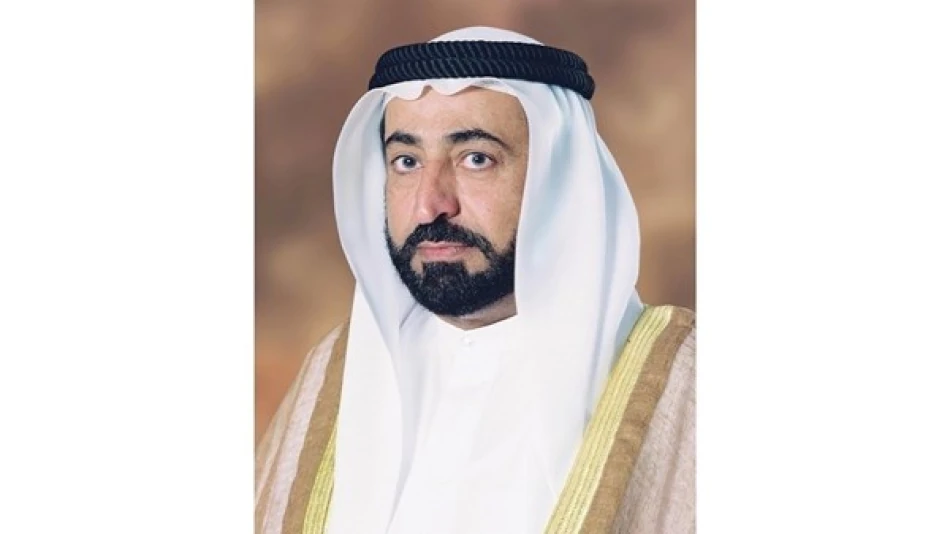
Sharjah Appoints Mira Al Suwaidi as Secretary-General of its Advisory Council
Sharjah Ruler Elevates Female Executive to Lead Advisory Council in Strategic Government Reshuffle
Sheikh Dr. Sultan bin Mohammed Al Qasimi, Ruler of Sharjah, has promoted Mira Khalifa Abdullah Al Muqrab Al Suwaidi to director-general level and appointed her as Secretary-General of Sharjah's Advisory Council, marking another significant step in the emirate's ongoing efforts to strengthen institutional governance and advance women's leadership in senior government positions.
A Strategic Appointment in UAE's Governance Evolution
The royal decree, issued by the Sharjah Ruler who also serves as a member of the UAE's Supreme Council, demonstrates the emirate's commitment to institutional development and gender inclusivity in leadership roles. Al Suwaidi's elevation to the special functions system within Sharjah's government structure reflects the UAE's broader trend of empowering qualified professionals regardless of gender.
This appointment aligns with the UAE's National Strategy for Empowerment of Emirati Women 2015-2021 and its successor initiatives, which have consistently pushed for greater female representation in decision-making positions across all seven emirates.
Sharjah's Governance Model Under Scrutiny
Advisory Council's Growing Influence
The Advisory Council of Sharjah plays a crucial consultative role in the emirate's legislative and policy-making processes. By appointing a seasoned administrator as Secretary-General, Sheikh Sultan appears to be strengthening the council's operational capacity during a period of rapid economic diversification and urban development.
Unlike some neighboring emirates that have moved toward more centralized governance models, Sharjah has maintained a robust advisory structure that provides input on local legislation and development strategies. This approach has proven particularly valuable as the emirate balances cultural preservation with economic modernization.
Institutional Continuity and Reform
The promotion from within the existing government structure suggests a preference for institutional continuity over external recruitment—a pattern observed across several UAE emirates in recent years. This internal advancement model helps preserve institutional knowledge while providing clear career progression pathways for government employees.
Regional Context and Implications
Sharjah's move mirrors similar governance appointments across the Gulf region, where traditional monarchies are increasingly professionalizing their administrative structures. Saudi Arabia's Vision 2030 and Qatar's National Vision 2030 have similarly emphasized technocratic appointments and gender balance in government roles.
The timing of this appointment coincides with Sharjah's ambitious infrastructure and cultural development projects, including the expansion of its position as the UAE's cultural capital and its growing role in regional trade and logistics. Having experienced leadership in the Advisory Council's secretariat could prove crucial for managing these complex initiatives.
Looking Ahead: Governance and Development Nexus
Al Suwaidi's appointment signals Sharjah's intention to maintain its distinctive governance approach while adapting to contemporary administrative demands. As the UAE prepares for its next phase of economic development beyond oil, the quality of institutional governance in individual emirates will likely become increasingly important for attracting investment and managing growth.
The elevation of qualified women to senior positions also enhances the UAE's international profile at a time when global investors and partners increasingly value diversity and good governance indicators in their decision-making processes.
Most Viewed News

 Layla Al Mansoori
Layla Al Mansoori






